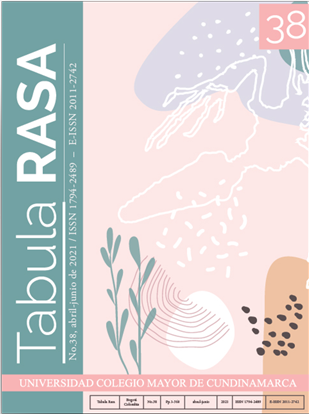Show authors biography
This article addresses succinctly four topics showing how three empires (the Chinese, Spanish, and British) and the distinct processes of Iberian and British colonizations became entangled in history. Drawing from Shu-mei Shih’s relational comparison, we analyse briefly the following issues: (1) anti-Eurocentric revisionist history that often includes Asia but excludes Abya Yala from world history; (2) the exclusion of Iberian empires from the conventional narratives of empires and modern world history, including postcolonial literary theories; (3) the artificial separation of the Iberian and British empires and their colonies in the so-called New World; and (4) the coloniality of democracy or the expulsion of the colonized from the polity.
Article visits 85 | PDF visits 77
Downloads
- Cañizares-Esguerra, J. (2006). Puritan conquistadors: Iberianizing the Atlantic, 1550–1700. Palo Alto: Stanford University Press.
- Fernández-Armesto, F. (2003). The Americas: A hemispheric history. New York: Modern Library Edition.
- Grosfoguel, R. (2012). El concepto de «racismo» en Michel Foucault y Frantz Fanon: ¿Teorizar desde la zona del ser o desde la zona del no-ser? Tabula Rasa, 16, 79–102. https://doi.org/10.25058/20112742.112
- Frank, A. G. (1998). ReORIENT: Global economy in the Asian age. Berkeley: University of California Press. https://doi.org/10.1525/9780520921313
- Hobson, J. M. (2012). The Eurocentric conception of world history: Western international theory, 1760–2010. Cambridge: Cambridge University Press. https://doi.org/10.1017/CBO9781139096829
- Hobson, J. M. (2004). The Eastern origins of Western civilisation. Cambridge University Press. https://doi.org/10.1017/CBO9780511489013
- Keating, C. (2011). Decolonizing democracy. Transforming the social contract in India. State College: Pennsylvania State University Press.
- Lugones, M. (2010, otoño), Toward a decolonial feminism. Hypatia, 25(4), 742–759. https://doi.org/10.1111/j.1527-2001.2010.01137.x
- Lugones, M. (2007, invierno). Heterosexualism and the colonial/modern gender system. Hypatia, 22(1), 186–219. https://doi.org/10.1353/hyp.2006.0067
- Mann, C. C. (2012). 1493: Uncovering the New World Columbus created. New York: Vintage Books.
- McMahon, D. M. (2004). The other transatlantic tie: The Hispanosphere. Orbis, 48(4), 657–672. https://doi.org/10.1016/j.orbis.2004.07.007
- Mendoza, B. (2016). Coloniality of Gender and Power: From Postcoloniality to Decoloniality. En L. Dish & M. Hawkesworth (Eds.). The Oxford Handbook of Feminist Theory. Oxford: Oxford University Press. https://doi.org/10.1093/oxfordhb/9780199328581.013.6
- Mendoza, B. (2007, otoño-invierno). Juxtaposing lives: Mary Wollstonecraft and Sor Juana Inés de la Cruz. Women’s Studies Quarterly, Special Issue on Activisms, 35(3-4), 287–291. https://www.jstor.org/stable/27649716
- Mendoza, B. (2006). The undemocratic foundations of democracy: An enunciation from Postoccidental Latin America. Signs: Journal of Women in Culture and Society, 31(4), 932–939. https://doi.org/10.1086/500607
- Nichols, R. (2005). Realizing the social contract: The case of colonialism and the Indigenous peoples Contemporary Political Theory, 4(1), 42–62. https://doi.org/10.1057/palgrave.cpt.9300153
- Pomeranz, K. (2000). The great divergence: China, Europe, and the making of the modern world economy. Princeton NJ: Princeton University Press. https://doi.org/10.1515/9781400823499
- Pomeranz, K. & Topik, S. (1999). The world that trade created: Society, culture, and the world economy, 1400–the present. New York: M. E. Sharpe.
- Shih, S.-M. (2015). World studies and relational comparison, PMLA, 130(2), 430–438. https://doi.org/10.1632/pmla.2015.130.2.430
- Weber, M. (1930). The Protestant ethic and the spirit of capitalism (reimpresión de 1905). Crows Nest: George Allen and Unwin.




